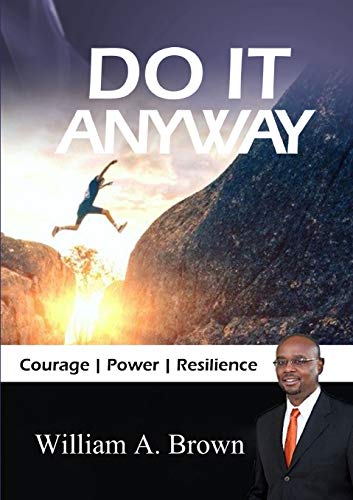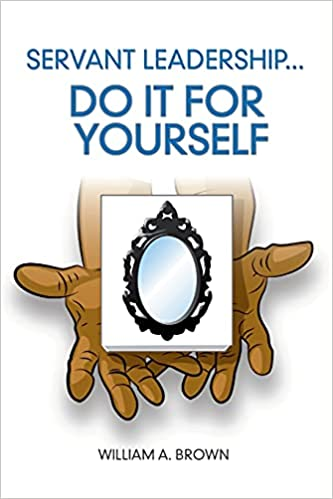Article-Detail
Paul O'Neill's Habits; Safety and Communication
In my research, anytime I come across another Fresno State Alum, it gets my attention. Paul O’Neill was featured in a book I read last year about habits. Charles Duhigg’s, The Power of Habit, makes the claim that most of what we do is habit and that you can change your life simply by changing your habits. A long time before Duhigg wrote his book, Aristotle wrote, “We are what we repeatedly do. Excellence, then, is not an act, but a habit.” Essentially, if you can adopt excellence as a habit, you too can be excellent. Granted, changing habits is much easier said than done but, if you do make changes, you will see changes in other areas too.
Paul O’Neill graduated from Anchorage High School in the 50s, somehow found Fresno State University and made the decision that Fresno would be the place he would earn his economics degree. Over the next 40 years he served in both public and private sector jobs as high as CEO and served under two different presidential administrations. He came to prominence for his turnaround of the Aluminum Company of America, Alcoa. Prior to his arrival, Alcoa was losing money and, occasionally, employees to industrial accidents. At Alcoa, employees, “handled materials as hot at 1500 degrees, and machines that will rip your arms off”, O’Neill describes. O’Neill’s focus during his tenure would be employee safety. His goal? Zero industrial accidents, zero deaths, and zero workdays missed.
He solicited input from people on both ends of the chain of command asking all to contact him directly when accidents happened and directed his managers to report injuries to him within 24 hours. It didn’t take long for a manger to be fired for not reporting a fatal accident on his watch. O’Neill didn’t seek information to judge, but to investigate and create systems to make factories safer for employees. The result? Not only did people report unsafe environments, employees called him with innovative ideas for the company. By the time he retired in 2000, Alcoa was not only the safest company in its industry but its value increased 6 times over its worth when he took over. The habit of employee safety spilled over into other areas.
O’Neill spoke to Harvard Business School, and John F. Kennedy School of Government students on October 17, 2002. During that talk he rebuked companies who say, “Our most important asset is our people when there is damn little evidence that it’s true... It’s just a syrupy sentiment everybody feels compelled to make.” He offered a challenge to students to articulate their values and prove them using employee responses to these three questions.
1. Am I treated every day with dignity and respect by everyone I encounter? O'Neill further clarified the question: "Not 'some people' or 'not by the people who work for me' but by everyone I encounter."
2. Am I given the knowledge, tools, and support that I need in order to make a contribution to my organization—"and this is the important part," he said—that gives meaning to my life?
3. Did somebody notice I did it?
If the answer isn’t “Yes” to each of these questions, your company does not see their people as their most important assets. Everyone, at one point or another, will unfortunately run into a boss who says he or she is all about their people but is an ass in their daily life. His challenge to those students, and my challenge to leaders is to not be that ass. Instead, take the time to talk to people, hear what they have to say, and to respond to their challenges. Do that, and you’re ahead of the game.
Paul O’Neill’s leadership story makes me ask myself if I can replicate what he did, create habits that change the industry and produce phenomenal results. Focusing on worker safety, and opening lines of communication on both ends of the chain of command accomplishes two important things.
1. It gives leaders access to information they are not usually privy to. Usually leaders are guided by anecdotal stories about one person’s experience, or worse, assumptions based on someone’s made up story. Both of these are dangerous because, as compelling as the stories can be, the information is unreliable and rarely speaks to the needs, or feelings of the people in an organization.
2. It communicates that the people on both extremes of the chain of command that their thoughts and feelings are important. If you want to build trust on your team, there are few other demonstrations of your interest in them than listening to them. They will tell other front line employees that the boss will listen. That conversation will encourage others to speak up too.
America struggled for independence due, in large part, to taxation without representation; making decisions without considering or even seeking input from our predecessors. Then America was built mostly on a patriarchal system where a small number of people made decisions for everyone without listening to them. The consequence? Various groups struggled to be a part of the decisions that impact them. African Americans for freedom from slavery, Chinese laborers in their desire to work, workers desire to unionize, women’s suffrage, or young people today who want to go to safe schools. Struggle is part of the American fabric because of people’s desire to be heard. That struggle continues until someone listens and change is made. The same is true at your workplace. Struggle is usually an indicator that someone isn’t being heard, so save yourself a lot of time and frustration and listen.
There are also times when your superiors create a hostile environment. This is a difficult situation because you can be trumped and undermined by people with the power to steamroll your efforts to create good habits and a positive workplace. I have coached people through this by reminding them that they have no control over their bosses, but you can be a light in your corner of the world. You can make sure that the people you serve or those who come to you can answer “yes” to O’Neill’s three questions. You will have to absorb some blows while you do it but protect your reports from as much as you can and your department will be a shining light in an otherwise hostile organization. Leadership is hard. When Paul O’Neill gave his first speech focusing on employee safety instead of profits, the board of directors got nervous and began considering if his hire was a mistake. Even more troubling were the investors who began to pull their money. O’Neill stuck to the plan and built a highly successful organization out of a floundering one. Just like Paul O’Neill, if you can find your habit that supports communication and success for your people, you, your team and your organization will SOAR!
William A. Brown
October 20, 2019
https://hbswk.hbs.edu/archive/paul-o-neill-values-into-action




